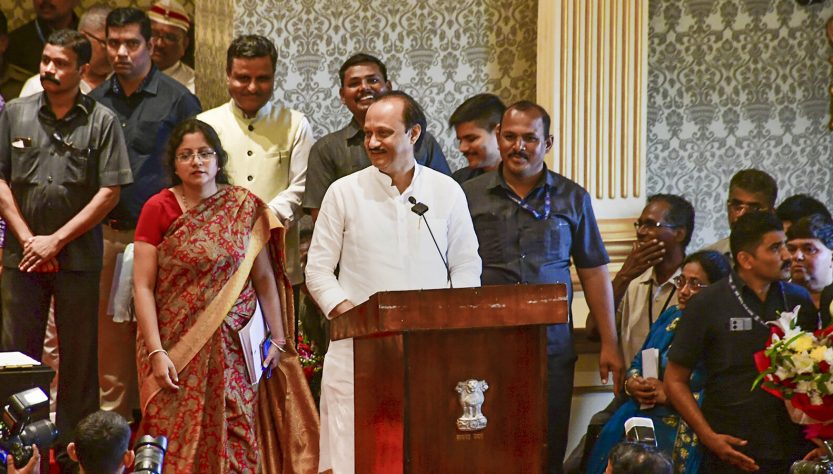- The number one reason is that like the Congress, Modi and BJP believes in trickledown effect. It will promote large industry and industrialist in setting up factories and businesses in the hope that these industries and industrialists will create jobs and money will end up finally in the hands of the consumer. This has been the standard approach of all capitalist countries but the results are there for everyone to see, the rich are getting richer and the poor poorer.
- Because the government is spending more than its income, the government will not be able to cut down on taxes and may end up increasing taxes to bridge the earning and spending gap. This will leave still less money with the consumers. Less money with consumers means that although there will be factories producing goods, there will be no one to buy those goods. And given the shoddy image India has abroad, the international market isn’t really waiting with open arms to buy the goods manufactured in India.
- The race for plum portfolios shows that BJP elected members are as keener to get hold of a ‘lucrative’ berth. A berth that will not only make them rich but provide for their generations to come. Thus corruption is likely to continue unabated and it will be the polity that will suffer at the hands of this corruption.
- It has been reported that Mr. Modi wants to move the freight off the trains on to the roads to give a boost to the transport industry. Unfortunately, transport industry runs on expensive and dollar denominated purchase of fossil fuel. 31% of India’s import in 2012-2013 comprised of fossil fuel. A boost to the transport industry will spell doom for the railways, one of the last remaining public sector undertaking that is making money. Railways may end up in the same condition as the national air carrier, Air India. This also demonstrates that government run public sector undertakings will continue to be stripped in favor of private organizations and profits will go into private hands.
- With such a large mandate that has come about riding on the contribution of party workers and crony capitalists, it is but natural that all those who contributed to the success of the party will demand their pound of flesh. And if that is not delivered to them on a platter, the honeymoon may end much earlier than envisaged by people.
- On the one hand the government is promising higher prices for the farmers and on the other they are promising lower prices to consumers. Unless the government moves swiftly to manage waste in the supply chain, this does not look like something that will happen quickly. Also, any effort to tame down the profiteers at the selling end of the supply chain is likely to bring about howls of protest. Eliminating the middle men is going to be a tough proposition as it would mean indirect FDI in retail.
- As prices continue to rise, doing business with India will become difficult for the world. India will no longer be able to provide cheap manpower in IT enabled services given the rising cost of infrastructure, utilities and education. Especially education as the government has abdicated its duty of creating human resources in favor of private organizations.
- Rising prices will also drive the poor out of expensive cities thus creating reverse migration to villages. This may create problems about which no one has even started thinking about. Case in point is the negative growth of Mumbai as per last census. Discontinuing popular subsidy schemes like MNREGA (Mahatma Gandhi National Rural Employment Guarantee Act) will be difficult and any attempt to do so will have negative effects on the electability of the BJP in the coming state elections. Same with other schemes like the Food Security Act, Right to Education Act (Sarv Shiksha Abhiyan) and as these subsidy schemes are essentially schemes implemented by the states and there are vast leakages in the schemes with benefit not reaching the intended recipient, disillusionment with the central government will continue to rise.
- Rising real estate prices will make it difficult for business to set up shop here. Housing price rise will keep pushing the working class to distant geographic areas putting pressure on transportation. And transportation is a recurring cost which the country can ill afford.
- With the country heavily dependent on inward remittances of dollars from expatriate Indians and falling exports, world economic scene will continue to play an important role in the story of India. And unfortunately this, Mr. Modi has no control over.
My attempts at making our country a better place to stay through sharing my experiences in management and day to day life. And adding my Information Technology experience as I go along.
Ad
Wednesday, May 21, 2014
Ten reasons why Modi will not be able to deliver on his promises
Subscribe to:
Post Comments (Atom)
Ad
The Pawarification of Indian Politics.
Maharashtra State elections have thrown up surprising results, results that have defied all opinion polls and even surprised the winnin...

-
This is the list of survey numbers issued by the collectors office for those affected by the recent forest land issue in Mumbai.
-
Many of you will remember the Telgi Stamp Scam that happened in 2000-2003. It was hyped initially to be 60000 Crores. Later the CBI declar...
-
In 1956 Government of Maharashtra reserved land in Mumbai for forests and acquired private lands adjoining the National Park from private pa...


No comments:
Post a Comment